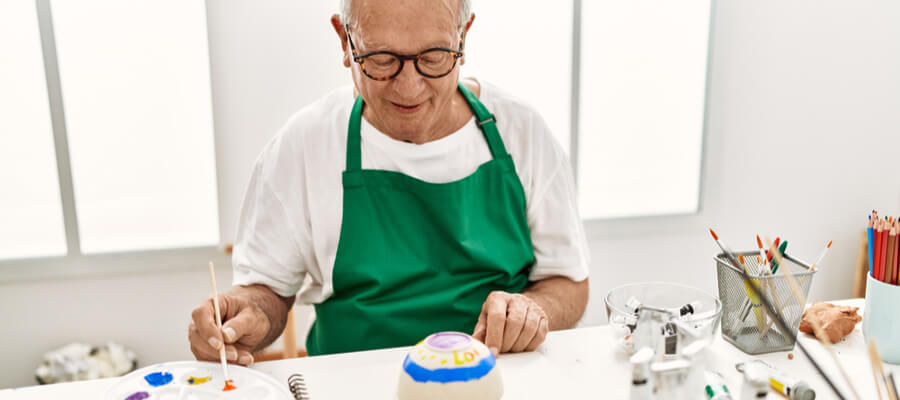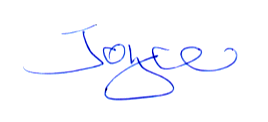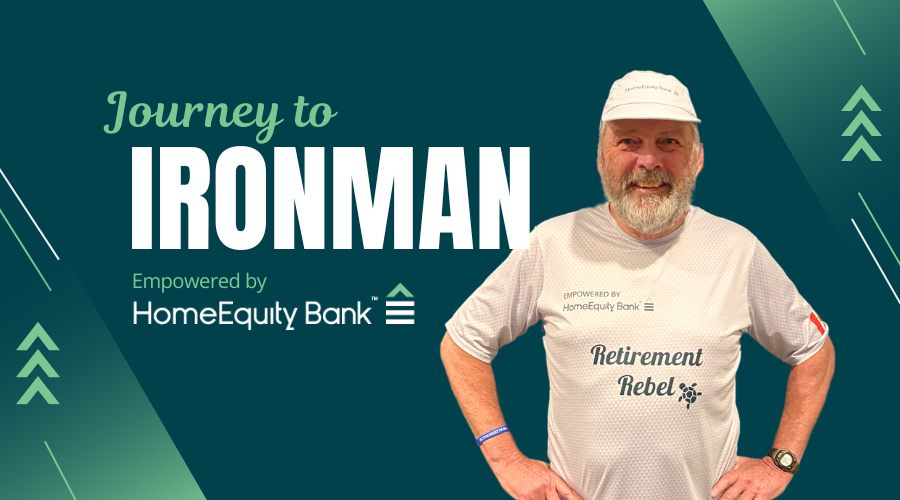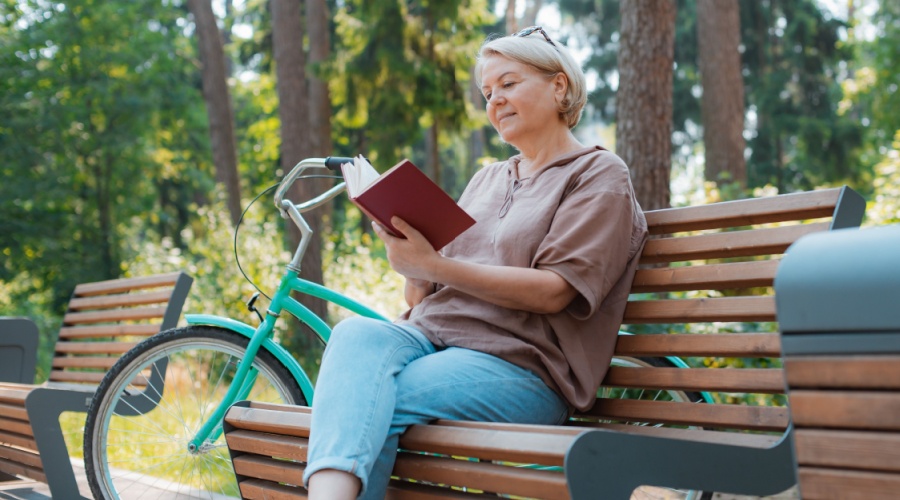By Joyce Wayne
If you’re looking at new ways to stay healthy as you age, exploring creativity could add a fresh touch to your daily routine. Researchers are discovering that it’s not only our body that needs to exercise, but our brain, too.
It surprises me that so much emphasis is placed on physical exercise and so little on using our minds. In a recent article in the New York Times, Matt Fuchs writes, “Ongoing research suggests that creativity may be key to healthy aging. Studies show that participating in activities such as singing, theatre performance and visual artistry could support the well-being of older adults, and that creativity, which is related to the personality trait of openness, can lead to greater longevity.”
For people like me, who lived in dread of gym class, creativity became my way of coping with feelings of inferiority at school. Everyone was focused on how efficiently they could make it over the gym horse without embarrassing themselves, or playing a sterling game of basketball. To be honest, I couldn’t do either. But I did find solace in reading, singing, theatre and eventually writing.
According to The Times, when researchers talk about creativity, they aren’t limiting it to the fine arts. Author and Georgetown University psychiatrist Norman Rosenthal defines being creative as “having the ability to make unexpected connections, either to see commonplace things in new ways — or unusual things that escape the attention of others — and realize their importance.” Creative people are chefs, potters, designers, and gardeners. Their passion for their creative endeavours is as strong as any poet or painter.
What Experts Have to Say Regarding Creativity and Aging
Creativity expert Ruth Richards strongly believes that anyone can become a creative. She coined the term “everyday creativity,” which can include everything from tending to a garden to being there for a friend. It doesn’t help to compare yourself to bestselling authors or Oscar-winning actors. What matters is that you enjoy the creative process and feel proud of your accomplishments. If that’s baking a cake or keeping a journal, it counts. You’re using parts of your brain that aren’t exercised in routine tasks where you can put your mind on automatic and go through the motions of getting it right.
The New York Times article suggests that “letting your mind wander helps too. Many highly creative people make time for idle thoughts unrelated to specific tasks. This engages the mind’s ‘default mode network,’ brain regions that facilitate the imagination. Although mind-wandering seems to decrease with age, it can be nurtured.”
Older Adults Know More About Life and Creativity
My husband often reminds me to come back to earth. I don’t blame him. That’s when I’ve been staring into the middle distance for 10 minutes without saying a word. Actually, what I’m doing is daydreaming about the next Retirement Matters blog I’m going to write or the essay or novel I’m working on. I’m also searching the archive of Joyce. Older adults know more about life because we’ve lived it. We’ve participated and endured ups and downs for decades. Increasingly, when I’m writing, I find that I remember an essential fact or thought from years ago, and that makes writing much easier and more fluid. Less research and more memory. Less repetition and more creativity.
This year, all five books shortlisted for Canada’s premier non-fiction prize, the Hilary Weston Writers’ Trust Prize for Nonfiction, are memoirs. Although it’s not among the nominations, my favourite narrative non-fiction book for this year is octogenarian Sharon Butala’s essay collection This Strange Visible Air, in which she writes, “What I didn’t have a clue about was that I was soon to be old, or what being old would mean to my dreams and desires.” Her memoir Where I Live Now: A Journey through Love and Loss to Healing and Hope is highly recommended.
Memoirs are a kind of meditation, and meditation helps build creativity by increasing independence of mind. “Research suggests it strengthens the executive function of the brain, helping to prune out ideas that won’t work.” Psychologists call it “field independence” when you rely on your own thoughts to problem solve rather than being excessively influenced by others.
When I retired and began writing fiction, I was tremendously influenced by the bestseller list for fiction. If only I could write one of those marvellous books that hit the charts. I’ve learned in the last eight years that creativity doesn’t work that way. Before I could write something of merit, I needed to rid myself of this notion or the concept of being overshadowed by the greats. I began concentrating on mining what I knew best and the way I wished to write about it. I’ll never be Margaret Atwood. Yet, I’m able to make the words flow together for what is meaningful to me and what I hope is to others. At times, it’s difficult to know if I’m connecting with others, but the trick is to try.
If you can combine independence of mind with your innate creativity, you’ll find it helps with making it through this pandemic. It’s not that you won’t be taking care of your health or encouraging others to stay healthy by wearing a mask and getting vaccinated. It’s that you’ll find a piece of each day when you’re deeply engaged with your own imagination and where that portrait you’re painting or that song you’re singing is the centre of your inner world.








